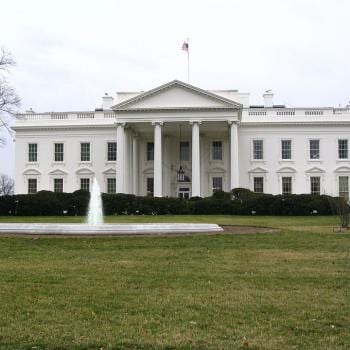While I certainly appreciate Nate’s passion for recognizing the sanctity of all human life, I am, nevertheless, deeply troubled by the tenor of his post. And although I am far from being an expert in this area, it does seem to me that Julian is quite right in characterizing Nate’s understanding of the principle of double effect as “simplistic.” But more than that (and this goes to the heart of what bothers me most), Nate’s post is striking in its dismissiveness of an established (indeed fundamental) teaching of the Church that we, as Catholics, believe Christ founded, and which is guided by the Holy Spirit.
Now, I am in no way suggesting that there is anything wrong with Nate struggling to understand the the principle of double effect, or its application. But it does seem to me that if one is going to take on a fundamental teaching of the Catholic Church, one ought to, at the very least, be much more respectful in doing so.
Additionally, Nate swish-of-the-hand dismissal of the double-effect principle would appear to also include an implicit rejection of the Church’s Just-War doctrine. And while we can debate whether a particular war meets the Church’s criteria, Nate seems to be suggesting (and I concede he may not have intended to convey such a sentiment) that any war that includes collateral damage is inherently evil. But to say this is to assert that all wars are inherently evil; and the mere existence of the Church’s Just-War doctrine precludes such a conclusion. This, of course, doesn’t mean that Catholics (and all Americans for that matter) shouldn’t take war much more seriously than we do. We should. But the harsh reality is that war is sometimes the only “just” remedy to injustices being committed in a fallen world.
Finally, the parade of horribles Nate lists as falling within the ambit of double effect clearly do not for the reasons Julian outlined in his comment. Moreover, Nate’s dismissal of an actor’s intent in a morally-challenging situation is truly puzzling. Is he really suggesting that when a doctor performs a surgical procedure to save a woman’s life with respect to an ectopic pregnancy (where the child has no chance of being born or surviving) that the intent of the doctor and the mother are of no consequence? To describe the actions of either actor in that particular situation (or their respective intentions) as evil seems to me to be beyond the pale. But I digress.
For all of the foregoing reasons, I hope that Nate will reconsider the substance of his post, and treat our Church’s fundamental teachings with far greater respect in the future.











